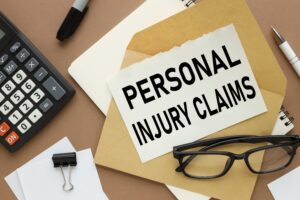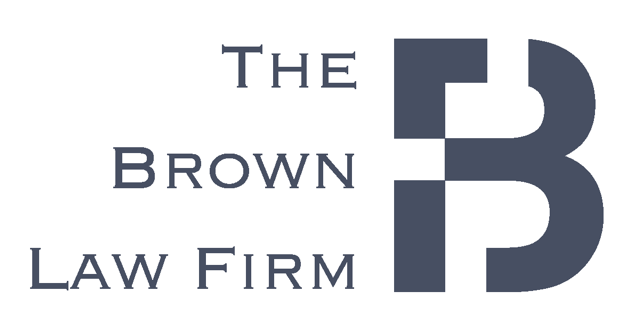What Evidence is Needed to Win a Personal Injury Lawsuit?
To win a personal injury lawsuit, you need evidence that proves another party’s negligence caused your injuries and resulted in damages.
Gathering and presenting this proof is a complex process, and the insights from a Colorado personal injury lawyer can be critical in building a strong case that clearly establishes legal liability and the full extent of your losses.
At Brown Law Firm, we are dedicated to helping accident survivors recover the maximum compensation they may be eligible for under the law.
If you are having trouble understanding what evidence is needed to win a personal injury lawsuit, schedule a free case evaluation with our experienced personal injury law firm in Steamboat Springs, Colorado.
Key Takeaways About How Legal Representation Can Help Gather Evidence in a Personal Injury Lawsuit
- Evidence is needed to prove four key elements: duty of care, breach of that duty, causation, and damages. Each piece of evidence, from medical records to expert testimony, supports one or more of these elements.
- Both direct evidence, such as surveillance footage, and circumstantial evidence, such as inferences drawn from facts, are valuable. A personal injury attorney from the Brown Law Firm can help weave together various types of evidence to create a compelling narrative.
- A personal injury lawyer plays a vital role in the discovery process, formally requesting and obtaining crucial evidence from the opposing side, such as insurance records or internal company documents, that you may not be able to obtain on your own.
- Documentation is everything. Maintaining detailed records of medical treatments, lost wages, and the accident’s impact on daily life provides the foundation for calculating both economic and non-economic damages.
The Building Blocks of a Strong Personal Injury Claim
 A personal injury case is much like constructing a building. It requires a solid foundation and carefully assembled materials to stand strong. In the legal world, that material is evidence.
A personal injury case is much like constructing a building. It requires a solid foundation and carefully assembled materials to stand strong. In the legal world, that material is evidence.
Without sufficient proof, even the most legitimate claim can fall apart. The primary goal of collecting evidence is to tell a clear, convincing story of what happened, who was responsible, and how the incident has affected your life.
Every personal injury claim rests on proving four key elements outlined under C.R.S. § 13-21-111:
- Duty of Care: The other party had a legal responsibility to act with reasonable care.
- Breach of Duty: They failed to uphold that responsibility through a negligent or intentional act.
- Causation: Their failure directly caused your injuries.
- Damages: You suffered actual losses as a result of the injuries.
Each piece of evidence you gather helps to build one of these pillars, strengthening your overall case for compensation.
What Evidence Is Needed to Prove Fault in a Colorado Personal Injury Lawsuit?
Proving fault in a personal injury case requires strong evidence that clearly shows who was responsible for the accident. Insurance companies often challenge liability, making it critical to gather and present compelling evidence.
A lawyer can help collect and organize the following key types of evidence:
- Police reports: These reports provide an official account of the incident, often including details about contributing factors and initial observations from law enforcement.
- Accident scene photographs and videos: Visual evidence of the scene, vehicle damage, and injuries can help reconstruct what happened and support your claim.
- Witness statements: Testimony from people who saw the accident can add credibility to your version of events. Lawyers know how to document and preserve these statements effectively.
- Surveillance footage: Video from nearby cameras, such as traffic or security cameras, can provide clear and objective evidence of how the accident occurred.
Collecting this evidence is only part of the process. A lawyer uses these pieces to build a cohesive case that demonstrates fault and counters any attempts to shift blame. With the right legal strategy, this evidence can make a powerful impact on the outcome of your claim.
What Evidence Do I Need To Prove My Injuries and Damages in a Personal Injury Lawsuit?
After establishing fault, the next step is proving the extent of your injuries and the financial and personal losses you’ve experienced. This requires detailed documentation that shows how the accident has affected your health, finances, and overall quality of life.
A Colorado personal injury lawyer from Brown Law Firm can help gather and present the following key types of evidence:
- Comprehensive medical records: These include emergency room reports, diagnostic imaging like X-rays or MRIs, follow-up notes, and treatment plans from specialists.
- Proof of lost wages: Employer-provided documentation of missed work, reduced earning capacity, or used sick leave is essential for claiming economic damages.
- Rehabilitation and therapy records: Records from physical therapy, occupational therapy, or mental health counseling highlight the long-term recovery process and its associated costs.
- Pain and suffering documentation: A personal journal that tracks daily pain levels, physical limitations, and emotional struggles can support claims for non-economic damages.
Organizing this evidence into a compelling claim requires a strategic approach. A personal injury lawyer knows how to present these details in a way that highlights the full impact of your injuries, helping to strengthen your case and advocate for fair compensation.
Strong Evidence Builds the Foundation for Maximum Compensation
The value of a personal injury lawsuit depends on the strength of the evidence supporting your claim.
 Comprehensive documentation not only demonstrates the extent of your losses but also helps your attorney fight for the maximum compensation you may be entitled to under the law, such as:
Comprehensive documentation not only demonstrates the extent of your losses but also helps your attorney fight for the maximum compensation you may be entitled to under the law, such as:
- Medical expenses: Coverage for past and future medical treatments, including hospital stays, surgeries, rehabilitation, and ongoing care.
- Lost wages and earning capacity: Reimbursement for income lost due to missed work and compensation for reduced earning potential caused by long-term injuries.
- Pain and suffering: Non-economic damages that account for the physical pain and emotional distress caused by the accident.
- Property damage: Costs to repair or replace damaged property, such as a vehicle involved in a collision.
- Future care needs: Anticipated expenses for long-term medical care, therapy, or assistive devices required due to permanent injuries.
A personal injury lawyer uses this evidence to build a compelling case that highlights the full impact of your injuries. By presenting a clear and detailed claim, they advocate for fair compensation that reflects the true cost of your recovery and losses.
Personal Injury Settlement FAQs
How long do I have to file a personal injury lawsuit?
In Colorado, the statute of limitations for most personal injury cases is two years from the date of the injury. For motor vehicle accidents, the statute of limitations is three years. It is critical to act within this timeframe, or you may lose your right to seek compensation.
Is my own testimony considered evidence?
Your testimony as the plaintiff is a critical piece of evidence. Your account of the accident and how the injuries have impacted your life helps a jury understand the human side of the case beyond medical records and bills.
What happens if I can't find any direct evidence like a video?
In these cases, circumstantial evidence like witness statements, photos, and medical records can still support your claim. Contact a lawyer as soon as possible to help collect and organize the evidence needed to build a strong case, even without a single definitive piece of proof.
Contact Brown Law Firm For Comprehensive Legal Support in Your Steamboat Springs Personal Injury Lawsuit
Gathering the right evidence is fundamental to the success of a personal injury lawsuit. Without it, you are left with a story, not a case.
If you have been injured and are unsure what evidence is needed to move forward, seeking legal guidance from the personal injury attorneys at Brown Law Firm may position you for the maximum recovery available.
Are you prepared to take the next step in pursuing the compensation you may be entitled to? Contact the Brown Law Firm online or at (970)871-7400 to discuss your case and learn how we can help.
